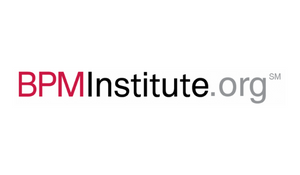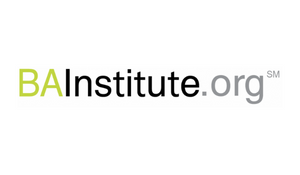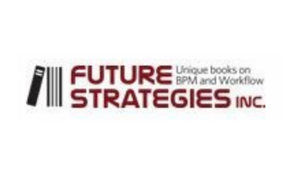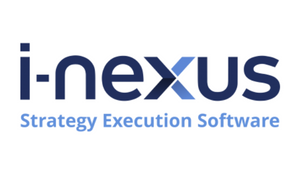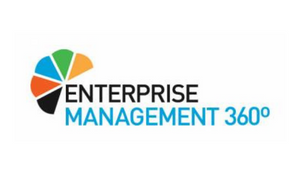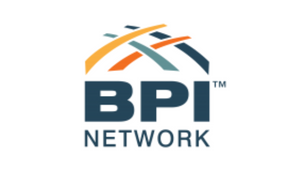
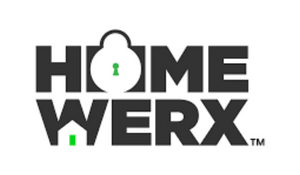
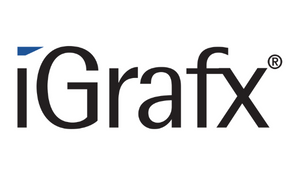

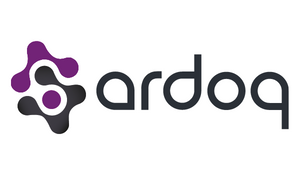
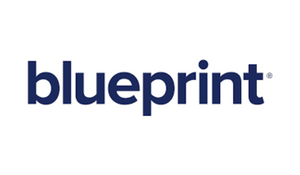
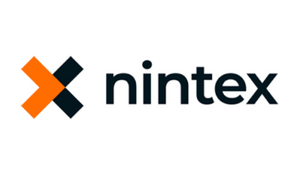
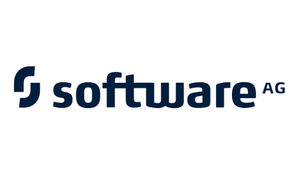
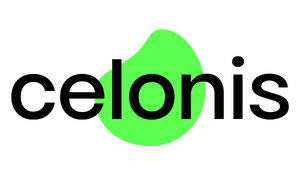
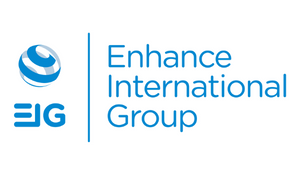
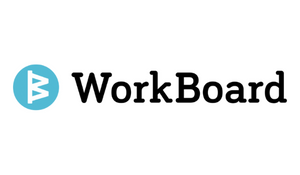
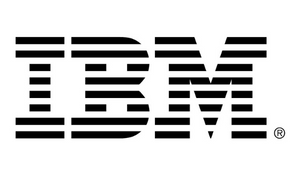
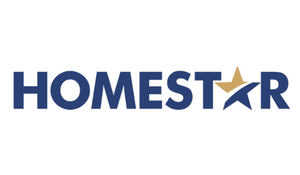
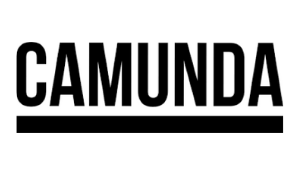
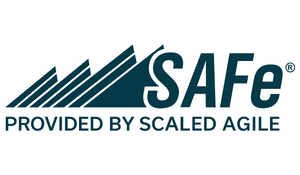
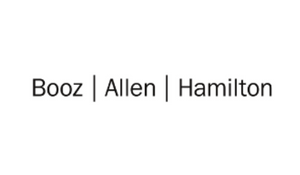
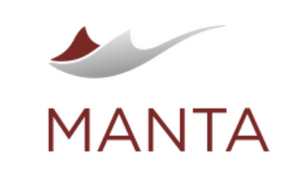
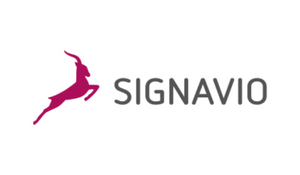
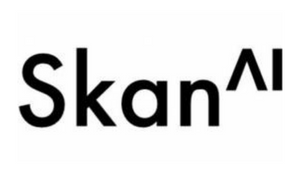

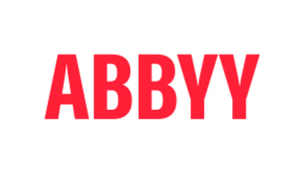

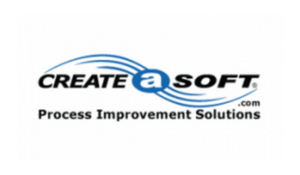

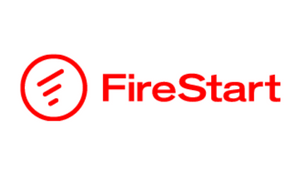


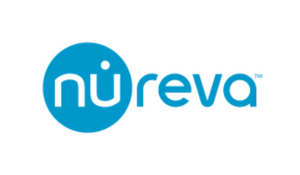
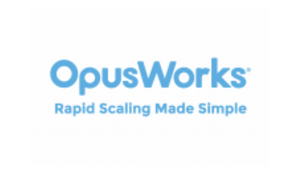
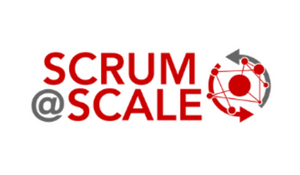
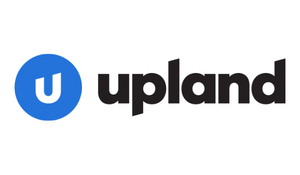
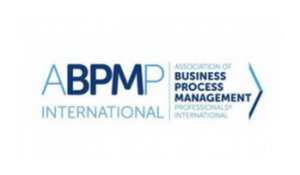
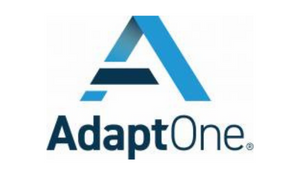
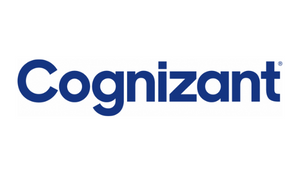
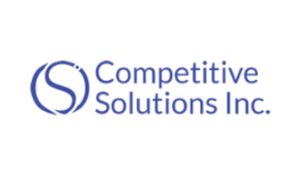
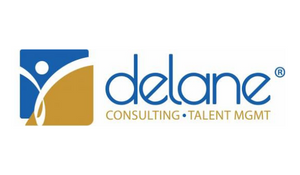

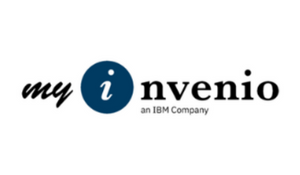
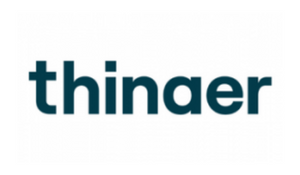
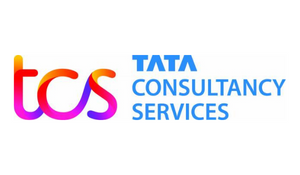
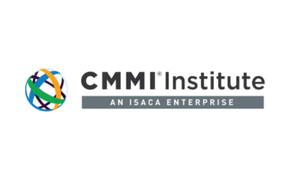
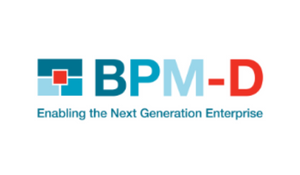

Courtesy of Innovation360's Magnus Penker, below is a transcript of his speaking session on 'Play Bold — How to win the business game by creative destruction' to Build a Thriving Enterprise that took place at BTOES From Home.
.png?width=200&name=download%20(95).png)

Session Information:
Play Bold — How to win the business game by creative destruction
Warning! This keynote is disruptive! Implementing its insights may result in double-digit percentage growth, outperformed competitors, new revenue streams, much faster and cheaper processes, and revamped business models. In short, it could put you at the top of your competitive market. This keynote is based on Magnus Penker’s upcoming book of the same title.
Key takeaways
Session Transcript:
He's also running the podcast play bold and he's gonna be talking to us about how you play both magnus thank you for being with us today and thank you for sharing this incredible wisdom that you have and practical experiences thank you jose what an introduction um great to be with all of you and play ball together so uh we are going to um run through uh 45 minutes together and we have 10 minutes at the end for a Q/A.
I would like to start with the slides with um where i share about storytelling that's a good way of starting up today's lecture so if i can have up the slides there thank you there are only two stories in the world i am told uh by a good friend in Hollywood he's a Hollywood screenwriter he told me this on an airplane between New-York and Singapore.
I lived many years in new york and I was commuting back and forth to Singapore when you still could commute and we shared so much time together and he said once to me magnus held two with only two stories in the world uh and what the heck I thought um and it is either a person goes on a journey or a stranger come to town a person goes on a journey means you explore you create your own destiny a stranger come to town that that basically means that you're the victim you're not in control so the only two stories in the world either the virus happened to you or you're happy to the virus.
.png?width=396&name=Screenshot%20(36).png) I lived in New-York when it struck and i know that most on this call is based in north America and it has been pretty bad and it's going it's getting back a little bit uh and accelerating from there so it was interesting to see how everybody reacted and I saw a tweet back in march where a blood center in New-York said that they were actually giving blood plasma with antibodies in as a treatment and that is happening to the virus now the interesting part is that this was done the first time 100 years ago during the Spanish flu it's not much new under the sun we just have to be a little bit bold and I'm going to look back to that one, so during the world war I am japan was very successful in hitting the U.S. and the U.S. actually got shortages of metal and couldn't defend themselves they didn't have enough metal for tanks or for ammunition or for airplanes and how do you fix that I mean people is not going to sell that to you during a war not going to happen most likely not at least so they decided to do something very bold they decided to put out the campaign bring in everything.
I lived in New-York when it struck and i know that most on this call is based in north America and it has been pretty bad and it's going it's getting back a little bit uh and accelerating from there so it was interesting to see how everybody reacted and I saw a tweet back in march where a blood center in New-York said that they were actually giving blood plasma with antibodies in as a treatment and that is happening to the virus now the interesting part is that this was done the first time 100 years ago during the Spanish flu it's not much new under the sun we just have to be a little bit bold and I'm going to look back to that one, so during the world war I am japan was very successful in hitting the U.S. and the U.S. actually got shortages of metal and couldn't defend themselves they didn't have enough metal for tanks or for ammunition or for airplanes and how do you fix that I mean people is not going to sell that to you during a war not going to happen most likely not at least so they decided to do something very bold they decided to put out the campaign bring in everything.
You have from pants pots cans cars equipment and people did and they'd be quite successful in hitting back they could melt down all their metal and get back in the cell again that is how you take control of your own life so this is a picture from me in New-York in march I said April Sorry I'm sorry right and is that bold or stupid well that was how it was and it was 500 penalty if you didn't have this equipment it's very close to the left-hand side with the robberies and I was actually i couldn't help myself i actually went to Citibank to my to my local office and I did actually enter in in in this costume uh and and they left me in and i was able to speak with the manager.
I happen to know the manager but i mean the god didn't know me so i asked the manager hey mr babs you know would you let me in if i looked like this you know three months ago and he was apparently saying no no way most likely you would shoot me right yeah it was most likely would be dead already so so that these things are changing and it's it's about attitude which brings me into use of shampooter he said hundred years ago innovation is the creative destruction where entrepreneur combined existing elements in new ways that means that everything already exists the silicon was in the ground for billions of years until someone digged it up and created the transistor which led to the cpu which led to where we are today everything exists it's up to you it's your story.
You create what's important for you and for the for for the community and for the planet you can't blame anyone not even the virus so we see very a lot of inter um acting or like intersecting interacting um key drivers right now they are like a woven they are in interlinked and interact with each other it is global warming pandemic conflicts hyper competition trade war demographic change refugees and the effect is devastating for the planet and we need to understand where this leads us we see supply chains that are totally different they are already disrupted i'm in several cases working with how to identify the new way of working and it's it's it is quite transforming what's happening in logistics just as one example of many so we did some research and published an article here for ieee a few years ago based on our database.
Where we have the most extensive database in the world actually with the data around innovation management culture capability leadership and so forth we identified top blockers top five blockers hindering you from actually being bald and make really really effective decisions the question is not what you learn in your mba the question is why do you not do it that's the big question you need to be bald and why are people hesitating there are five top reasons and i'm going to walk you through one by one and i'm going to link it to the pandemic not because it is the only thing you can link it to it rather it's a way of explaining that all systems are self-regulating if you put enough pressure on the system it will self-regulate even if it crash first it will the nature always find equilibrium it might crash first but it will find equilibrium and when we put enough pressure on our systems in the world they self-organize in the right way but it doesn't have to be like that you can actually do this in your own company in your own family among your friends in your country in your region in your city you don't have to go through this enormous pain you can actually organize that is why my research is about that's what i'm consulting in that's what i'm writing books about and this is possible and we've been able to prove it with 29000 companies out of 10000 that we started we sherry picked 29000 have been around quite some time and we detailed study them so let's walk them through one by one.
We start with silos in the beginning of the covert and when I referred that that's much and when i refer to the current situation it's it is today this summer and what's happening now in the beginning in Europe no one wanted to help China or Italy where it started no one in the U.S. there was no federal help at all it was like okay new Yorkers take care of yourself in china the information was withheld they didn't say anything but suddenly after a while in a few setbacks when people realize how bad it was they started to collaborate they adopted in EU they started to actually collaborate and coordinate unfortunately during the summer when everything was going back to normal they stopped doing it which is sad and now they pay the price for it and i can tell you with 99 probability they're going to collaborate again in u.s it was federal support until very recently which is kind of interesting in u.s now it's gone it will be back because that is what's happened to all systems but you could be proactive actually then you have china in china they started to inform the world they actually opened up and collaborated and they were actually becoming a role model then when everything go back to normal they did like close themselves a little bit again but now they my guess is they're going to open up again and go to be the role model.
If we look to the next one face in objectives you need to believe in things in europe they didn't believe in anything they only struggled with the brexit and with trade and unemployment rates and and who is funding who um and suddenly they had a unified response and it was very strong then it loosened up again but it will be back it's you can already see that happening in the u.s it was um impossible to put up any kind of goals no one had any interest in that but what happened was actually that the president invoked the defense production act and that hasn't been done.
Since the second world war that's unbelievable and started to produce ventilators now so the reaction was very i mean that could be foreseen and it will happen again you have to actually put up tangible goals to to handle the situation you can have goals about vaccine but that's not sufficient you need more more goals however a small comment even if the president were invoking this act and forced general electrics to produce ventilators they didn't they didn't have the capacity to do it and i was in New-York.
We were really scared and i quite sure how many new yorkers here and people from the west coast that that that was it was bad and i mean now it's been another porch uh and in the early days we had two too few ventilators and there wasn't a ventilator it was not possible to create them so elon musk did it's a bit unclear how many actually produced but they were able to produce them in the speed of light because general lectures wasn't really ready they are not ready to act on disruption as many large corporations so china they had the brutal lockdown in the beginning because they didn't know how to cope with it at all it was devastating for many people they blocked the doors to people's home and stuff like that uh and then they opened up step by step and in a very controlled way and now they have almost no infections then the higher purpose that is the certain thing that is that is hindering you if you don't have that or helping you to change and cope with radical energy information you know.
It's a radical innovation and transformation so in EU there was no higher purpose people forgot why it existed it was to protect to prohibit war people forgot that everything was good for 40 years so they were struggling instead with Brexit and stuff like that and suddenly people start to talk to why do actually you exist in the u.s there was no support to the society it was um no higher purpose with a nation suddenly actually there was an increased systematic response especially focusing on mitigating the consequences much better than Europe Europe hasn't handled this especially well compared with us when you talk about actually bringing money out to the people and then China they just wanted to preserve the ruling elite and suddenly they become the world role model.
It's amazing to see how they linked everything to a higher purpose fear fear of failure is the fourth blocker if you fear fail you will not succeed when he knew we had we were so scared of using non-certified protection so we didn't use it at all which is a joke why should not use it if you are actually risking to die you should of course use what you have and suddenly we accepted it but now it's back again in u.s no one was willing to uh restrict social interaction whatsoever and bulk purchase was yeah if you buy you know ten thousand masks and sell them good for you but suddenly actually they were forced restrictions and a lot of company prohibited bulk purchases and they stepped up um and then in china they denied everything in the beginning and then they started to test and test and test and test and open up step by step and to control uncertainty is also a blocker for any kind of transformation because you don't know and you don't know what you don't know and in EU it was bad forecasting development strategies.
You have so many strategies and suddenly we started to test and build the case and learn just like you do in any kind of innovation process or transformation process experiment put up in hypotheses validate react learn then bring it to the market and iterate until you understand and it's a non-linear process you can't foresee it from the beginning it is impossible actually it's ridiculous to try to do that and in the u.s we didn't have any goal for testing and suddenly it was at least a discussion about it in china lack of knowledge they couldn't do much and then they were very sophisticated in putting up goals so the situation right now is that.
If we look at death per hun per million people which is the best way of measuring things actually because that is if you really have an issue that's that's the fatal uh uh part of Covid is when someone is is gone and and which is terrible and it's terrible to see and a lot of parts of the world it's too many people die in the u.s it is quite many so there was a peak in April and we learned quite much but it's way too many if you compare with south Korea or Singapore well they don't have anything basically people talk about Australia a lot of other countries but if you really really look into data and you compare and contrast big cities that are possible to compare not big lands like Sweden with i don't even have a neighbor so if you really try to compare crowded cities and and where you really have a situation that is hard to control this is comparable and why I'm going to tell you why we started this very carefully in our data so south Korea and Singapore compared with the us has a very high aspiration of radical innovation they are used to disruption they are used to disrupt their used adapt improvise and overcome in average u.s is not and we can talk about Europe too but right now i compare a two extremes here okay there are acceptance u.s u.s is maybe the greatest country in the world but an average oh no large corporation nope that's the data so we so we need to understand that we need to increase our ambitions here and if we look that's on the left-hand side that's the ambition okay on the right-hand side.
You can see the capabilities that are correlated to radical innovation we did a correlation analysis to see out of 66 scientifically vetted capabilities which one of those to have a strong correlation to handling radical innovation and as you can see south Korea and Singapore outperform the us in those capabilities and this is an average of all kind of industries and all kinds of organizations across the board so as a nation u.s need to step up with both ambitions and building the capabilities you can't just say no this court we have to focus on that or no we have too much to do or i don't want to take the risk i don't want to get fired.
I don't believe that and so forth we need to understand to have a higher purpose put up goal and break them down to work across the board to open up much more to handle uncertainty and to believe and to accept failure that's actually one step closer to success so if you put enough pressure to any kind of system it will self self-regulate and it will create that self-regulation through destruction just like somebody said 100 years ago it doesn't have to be like that instead you can leap frog to the nexus curve everything in life is s-curves you grow you mature you fade away and you decline and you're gone civilizations like us we will be gone.
I don't know if it's one year or ten thousand years but we will be gone humans animals organizations everything will be gone the good news is that an organization can survive and leap frog and in religion we also leap frog today's call is not focusing on religion but if you'd like to please listen to play bald I have Islamic leaders Christian leaders I'm also in in actually invited the Vatican and if there is anyone that is having a strong background um in uh in the jewish religion please reach out to me or in Hindu or in Confucius uh learnings.
I'm very interested to have you on play ball by the way it's very interesting but this call is not about that this call is about organizations and we can extend the s curve by doing what incremental innovation continuous improvement but it will die we need to leap frog to the next s-curve to the next s-curve to the next s-curve and how do you do that well you organize yourself for radical innovation you train you learn you put up hypothesis and eventually you leapfrog and you leap frog a few things will fail yes but you know and you find esker and this is play bald in the first horizon here and now in the second horizon tomorrow the third horizon the future this way it doesn't have to end up like this this is a model from Gary Hamell, it's a great guy if you haven't listened to him you should do that we are in the southern collapse face you can't do anything about that that's where we are as a planet as a nation as a society that's where we are but we can organize for getting back but only in a scientific way and we have to collaborate and we have to believe we have to work hard.
We have to take risk we have to experiment to have the law we have to fail and that way you don't have to become a brooks brother or a serious or kodak or toys r us or hurts or it's unnecessary and and we're going to see quite many of those chapter 11 very soon when all the support is gone it will happen and corona is only accelerating what was inevitable what already will happen but it will go faster now it's time to play ball to take control to mitigate uncertainty to collaborate in cluster to experiment and learn to jump to the next test curve to identify the new normal where you will have to cope with and understand electrification.
How to miss ultimate optimization new super clusters new way of working radical pockets and protagonist rebuild supply chain revised healthcare policies it's a new world out there and you know what we can do really good things but we have to understand we can't go back it will not happen now it's time to organize and play bold and you have to work with your culture you have to work with your structure you have to start to act that's the important things here and from a cultural perspective the right aspiration the right leadership the supporting values and the capabilities and out of these 66 identified five blockers what are 61 more that you need to have in place based on the last 100 year of current thinking.
You can also read about that if you go to amazon and look at one of my books i have a book called assessing a message innovation there you can see i actually published the whole framework just go there download it it's there for you guys just stay on top of it when it comes to structure it's about scenarios scenario planning fast innovation management system with kips in place you can do that it's possible we do it every day every week every month and we accelerated that through corona and they add the pre-stage gate gated mode.
When you work with stage kit demon i know most of you do it's it's the by far the most common uh processing in north America it's so it's irrigated and if you combine that with agile method it will be even worse so you need to add a pre-state Scada model to do that then you can speed up your new product development process with 30 and you need to iterate over decision points because you don't know you need to create feedback loops also in development and when you tell it to someone they always say yeah yeah we do that.
I can tell you a little secret i have never seen anyone and we work with some of the largest corporations in the world it is not that simple and you need to open up and be humble and say let's make it better let's bring it on and let's learn so that's the cultural structure in the acting port in this turbulent times you need to establish a command center but don't believe one single second that an innovation lab will solve it it will not i been personally and with my team closed down a number of innovation centers that failed it doesn't work you can't just buy yourself free it is about culture it has to be inherited instilled and for that you can do an assessment.
You can assess actually you the whole uh innovation autonomy in your company and based on that draw conclusions and in three to four weeks you can diagnose it and give the right medicine otherwise you will ask the same question a half year later and a half year later and then you start innovation center and everywhere everything is falling apart and nothing is working and you burn money and maybe even get fired for that so you need to actually to to quantify predictions into probability and degree of uncertainty you need to have someone taking control leading the work and instilling innovation structuring and culture and you need to test and learn and work with hypotheses and most important of it all you need to act as an anthropologist you need to observe or an ethnography.
If you want to so everything is about to understand and and actually to do an assessment that is to understand the iceberg of innovation what's under the surface you can't do that by asking because people will not tell you even if they know and most of the time they do not know you need to assess and you see the cover on the book if you'd like to to read that one it's give you very good guidance or you can reach out and to do this kind of work the whole idea and this is also why this play bald is to bring your organization from unconscious incompetent which is a very nice stage by the way it's fantastic you're so happy until schmuck like like me knock on the door and you become conscious incompetent which is very annoying it's very annoying then you work hard to become conscious competent then you start to teach others and then you become annoying for everybody else instead and suddenly you become the master the unconscious competent this is playing bald and it hurts in the beginning but you know what that's life but you can shorten this and you can make it less painful by assessing and having a scientific approach but one day you have to face reality and if you do it sooner than later it will be much more efficient and you can actually gain from it and grow more and do more good and create more sustainable impact waiting is not a good answer for this.
You can use the framework um it's also published in the books and you can map things out in this wheel of innovation is actually a patent kind of cool way of doing it you can find it in the books and you can do it yourself or with with systems and if you do this work it's proven in large study by price voltage coopers that you increase the profit with 22 is pretty cool and you grow like 40-50 more i would like before we have the Q/A, to give you seven golden rules to play bald from me to you, the first golden rule is to break silos, every launch a mid-sized organization, you have to break them down you have to start to collaborate, it might be that you perceive that you get in a less favored position because someone is doing a better job than you're doing but they will beat you anyway so join them instead bringing down the barriers is imperative and to do that you need to believe and have a higher cost that is the fifth rule.
I will come back to that then you have to accept uncertainty because you don't know and uncertainty is not the same as probability it's two different things and listen now very carefully there are two units in math or philosophy that can't be divided uncertainty and infinity you deal with an infinite number of possibilities with total uncertainty you can't divide these two units which mean that agile mastered and safe and other framework is absolutely meaningless when we talk about radical innovation and transformation in situations like we are in right now you need to treat it in a holistic way and there are good methods for that you have to start with accept uncertainty you can be more sophisticated and talk about the degree of uncertainty and then you can combine that with probability and then you can say this is the probability and this is the uncertainty in percentage of the probability then with then we're really moving to a more sophisticated way that's by the way how NASA is doing things and because they have to um than to break down goals into action.
It's not sufficient to be the bold leader and just say let's bring it on you need to play ball the whole way you have to work yourself through every layer and if you look at apple for instance there was a very good hpr article recently that said every leader at apple has to work three level down i don't know that because i didn't work with them but i know that's the case in many of our clients where they really have good leadership you work yourself down several layers and that way you can support people to break down into to actions the worst thing you can do is to give someone a bald goal without helping them if you want to play bald as leader you need to help people to break down the goals that's bold then you have to learn from failure andyou can do a lot of failures but i always say fail fast and fail sheep but you need to to fail and most importantly you need to learn from it then you have to have a belief you need to dare to believe in a higher course that motivate people it gets you back on in the saddle immediately and then you need to train train train act learn act learn again that stone way and never ever say it is impossible instead say what is now possible thank you fantastic coverage magnus well done um you have covered so many areas there that we can spend hours discussing.
So I'm gonna try to make the most out of our time together here i want to engage the audience with any questions that you have to put them on the questions in the app and i'm going to be monitoring that um i am I'm going to start with the the what you end up with here you you you start by talking about the blockers for organizational growth and innovation and then you can you develop you know the uh the foundation on the around those blockers and what they look like in a context like what we have today with the pandemic and then in the end you provide a list of what we need to do and a lot of those items in the list attack those blockers so i i want to ask a question about the blockers fear of failure silos dealing with ambiguity.
I'm using my memory here um unclear purpose and lack of faith in objectives i think that's what i got roughly um you know they're all very important items I'm curious on your practical experience um what do you find to be uh the most pervasive blockers the ones that are most difficult to overcome and uh and uh that you find practically that uh those are the things that you spend the most time on uh that's that's a good question i i mean all five is is really top blockers but if i should pick a few um from a north American context because it's actually different a little bit between or where you are in the world but from an awesome American point of view.
I would definitely say fear of failure people are very afraid of getting fired so they don't they don't really you know go out of the comfort zone uh and if they do they're entrepreneurs but the large corporation we we efficiently kill them by buying we don't give them any autism we don't give them any possibilities and the way to tackle that unfortunately there is only one protect where to tackle that and that is to start on the top but I have worked with a few large organizations, where the leader is saying it's okay to fail um but the level three is blocking it not necessarily level two and i think that this the roots here is how you recruit leaders you need to have you need to understand that you need to recruit leaders that could be your own leader and people are very afraid of recruiting someone that is more capable of leading than yourself but that's exactly what you should be doing you should always think about how can i recruit someone that could be my my leader if you do that they will follow.
If the CEO says that it's okay to fail everybody will accept that but if you have political creatures um that might not be even less competent uh and less trained with doubtable attitudes they will block it and i see this on level three it's very often blocked and i don't want to offend anyone on this call but statistically it is doctor that's my experience the second one that is very tricky is uncertainty why because if you have external funding's or you listed even worse um people will ask for an roi but how do you do an roe on an iPhone one how do you run a tesla it's ridiculous you can't do that you have to accept uncertainty what you can do is you can do much more much faster and learn and then you can produce a business case but i say in north America.
This is the two main blockers you want to see the cash on the table before there is a table and you don't want to get fired uh so and it's interesting being a swede lived uh in new York for many years and worked all over the us i can tell there is no not one single country in the world where it's easier to get a job than in the us there is always a job for you so so you shouldn't be afraid at all actually there are much worse places on the on the planet like japan if you get fired in japan people take the life instead so i think the u.s is a tremendous opportunity here very good very good uh Christina coyne has a question here that i think it uh that has ranked high and i want to pass it on to you and she's asking how do you feel about having a separate team spearheading innovation versus having the organization's existing business owners Innovating as an expectation of their role.
So what are your thoughts on separate innovation teams versus innovation is is what we do how how do you how do you blend those two levels there are three principles the first principle uh is that you have an integrated way of working with everybody's work with innovation the second approach is that you decentralize you have like small units and the third approach is that you centralize and you have a special purpose vehicle.
They have pros and cons and it depends on the situation that you're in and the city and the the where you are in the s-curve in the industry um generally speaking i have not good experience of having separate themes because they normally don't solve their real challenges saying that you might need to have a separate resource that could support the innovation work but if you make that as something separate most likely you will fail and i met so many innovation labs that did fail but instead if you create what i call innovation task force and you will identify strategic initiatives within the company and then you can support the um something in this initiative instead that's a much better avenue much more efficient saying that there are exceptions always exceptions uh but generally speaking um create a task force linked to strategic initiative declare sponsor and create resources methods and tools for supporting the organization uh but don't and also I slice up innovation in first second and so horizon first horizon is everybody's work that's improvements third horizon is around the corner.
It's a few working with that and in the middle you have the piloting and prototyping and testing which is actually done by more people and especially one close to the markets terrific magnus one of the one of the items that you know that you have highlighted some of your work in your books certainly in your practical application of innovation acceleration is the concept of the amplifier in the organization finding those individuals who amplify really whatever initiative you have but in this context of innovation if you have an innovation you know drive if you will uh do you how do you want to find these amplifiers because they accelerate the process the question is how do you go about finding those amplifiers and who those amplifiers are in your organization okay uh great question so we we dealt with everything from um a few of the actually i would say that i'm not allowed to say that.
So I can't say that but we have a few of the large organizations in the world on our client list so everything from that to to like a couple of thousand people and but one thing in common is that no one knows the organization well enough exactly what you point at so we do an uh internet-based assessment we call it 360 at every level internally and externally that could be done in two weeks and we assessed up to a hundred thousand people not a problem and you can you can of course use with samples and stuff like that too if you want to and then you can identify teams that are excelling in some way we call that amplifiers we can identify common blockers that we can address and if you're really lucky and you find a common blocker.
You might actually find some amplifiers internally that you can point at to say hey look at that we need to learn from them and that way it's so much easier to run a transformation if you come from outside and say this how you should do it the organization will react like like you know it will always react you in a biological way they don't they don't want you there so instead you should work from inside and identify these teams doing a good job so that's what we do and we call it amplifiers and then we use that to break down the blockers basically that's that's a very uh that's a very interesting perspective that you're identifying both the amplifiers but also the blockers because uh maybe a two-prong approach here on those uh makes sense makes a lot of sense to accelerate this process in in organizations.
when you look i mean you work with organizations all over the world in all industries when you look at the best of the best what does their organization portfolio and structure look like i would say without doubt they have a balanced portfolio with what i call h1 82 and h3 products and i risk mitigate by not doing what i did yesterday the risk mitigate but creating portfolio just like you're investing in a fund you need to have something for the future something that you try now and something that is the basic blood circular they're very good at that uh and they also put a lot of effort into learn to to move them from horizon street horizon two winners and one and pretty efficiently kill them if they don't fly that i think is is it common for for all of those very successful companies fantastic magnus banker always a pleasure to talk with you tell me a little bit play bold is coming up next year and uh what is the best way for us to learn well play both is that going innovation360.com playboat.com where do we go yeah so innovation360.com playbold.
There you will find everything you will find a podcast you will find news about the book there will be some goodies giveaways uh it's very collaborative and and i'm also now we just finalized the first season it will be second season actually the next year and the book will be launched second of february but innovation360.com play bold and you will find all the information you need very good magnus thank you so much for sharing your wisdom with us from stockholm to the world today and uh look forward to learning more about how to play bold how to stay relevant and create you know social good and business good uh with innovation.
So thank you very much thank you ladies and gentlemen this wraps up the session and i want to just mention to you again i mentioned at the top but i've heard i've seen in the app that some of you had some problems with the audio when i was speaking up on top so i'll just summarize a little bit i did i was remind you up on top when i started the session that the virtual booth one thousand dollar prize giveaway um you just you need to meet with five different virtual booths to be to to get that and also the virtual booths have many other prizes and giveaways uh going on as well so make sure to check them out make sure to connect with each other make sure to you know find those leaders and professionals.
who you think are in a you have a common purpose you know have interest alignment with what you do you know all of the bios are online we have over 2000 uh registered articipants and many more they're still joining us so it's a wealth of the of knowledge and access to uh business transformation operational excellence leaders our next session will be a kindle panel here the main stage as you know there are sessions going on uh all around us right now but at 1 30 p.m. eastern time we're gonna have a keynote panel on robotics process automation and intelligent automation and the impact of covet 19 and what the future holds so this is not only for our work but also for our lives and there are some really awesome technology and business thought leaders who are going to be in that panel with us i look forward to seeing you there at 1:30 pm eastern time.
Thank you

.png?width=235&name=download%20(76).png) Magnus Penker,
Magnus Penker,
CEO,
Innovation360.
Magnus Penker is an internationally-renowned thought leader on innovation, sustainability, and business transformation. He is a speaker in prestigious global forums and events, such as – The Global Peter Drucker Forum, top-ranked international business and design schools, a variety of associations, and some of the world’s largest companies. Mr. Penker is currently writing Play Bold and a 5 Volume Series on Business Innovation titled The Complete Guide to Business Innovation and is contributing as an editor at the International Journal of Innovation Science. As a result of these achievements he has been honored with the Business Worldwide Magazine award as the ‘Most Innovative CEO Sweden 2016’ and appointed as a Global Top 100 CEO by CEO Monthly year 2018. Additionally, he has launched 10 start-ups as well as acquired, turned around, and sold +30 SMEs all over Europe. Through his best-selling American books on digitization and IT engineering and his more than 20 years of experience as a management consultant and business leader, Mr. Penker inspires leaders to find a new way of thinking and organizing to stay on top.Mr. Penker is driven by the recognition that in these turbulent times, we must understand what we are really good at and determine how we can use those capabilities and competencies to create advantages in a globalized market with endless possibilities. The global map is being redrawn at speeds we have not seen before, and historically low interest rates are attracting capital to global digital-risk projects that will further strengthen this movement.Mr. Penker has a B.Sc. in Computer Science (CTH, Sweden) and an MBA from the Henley Business School, England. For the past 10 years, he has used his practical and theoretical insights to develop InnoSurvey®, a leading methodology and global innovation database which is used to analyze and to provide advice to companies, business leaders, and scientists around the world. Today, Mr. Penker is the CEO and Founder of the Innovation360 Group, which is headquartered in Stockholm, Sweden, and in New York, USA.

View our schedule of industry leading free to attend virtual conferences. Each a premier gathering of industry thought leaders and experts sharing key solutions to current challenges.
View Schedule of EventsWelcome to BTOES Insights, the content portal for Business Transformation & Operational Excellence opinions, reports & news.
-------------------------------------------------------
Search for anything
Insights from the most progressive thought leaders delivered to your inbox.
Insights from the world's foremost thought leaders delivered to your inbox.
Being a hero is all about creating value for others. Please invite up to 5 people in your network to attend this premier virtual conference, and they will receive an invitation to attend.
If it’s easier for you, please enter your email address below, and click the button, and we will send you the invitation email that you can forward to relevant people in your network.
View our schedule of industry leading free to attend virtual conferences. Each a premier gathering of industry thought leaders and experts sharing key solutions to current challenges.
View Schedule of EventsWatch On-Demand Recording - Access all sessions from progressive thought leaders free of charge from our industry leading virtual conferences.
Watch On-Demand Recordings For FreeDelivered by the industry's most progressive thought leaders from the world's top brands. Start learning today!
View All Courses NowThe premier Business Transformation & Operational Excellence Conference. Watch sessions on-demand for free. Use code: BFH1120
Watch On-DemandInsights from the most progressive thought leaders delivered to your inbox.
Insights from the world's foremost thought leaders delivered to your inbox.
Being a hero is all about creating value for others. Please invite up to 5 people in your network to also access our newsletter. They will receive an invitation and an option to subscribe.
If it’s easier for you, please enter your email address below, and click the button, and we will send you the invitation email that you can forward to relevant people in your network.
Courtesy of Nintex Pty's Paul Hsu, below is a transcript of his speaking session on 'Improve employee productivity during and post-COVID by ...
Read this article about HP, Best Achievement in Operational Excellence to deliver Digital Transformation, selected by the independent judging panel, ...
Read this article about BMO Financial Group, one of our finalists, in the category Best Achievement in Operational Excellence to deliver Digital ...
Read this article about Cisco, one of our finalists, in the category Best Achievement of Operational Excellence in Internet, Education, Media & ...


